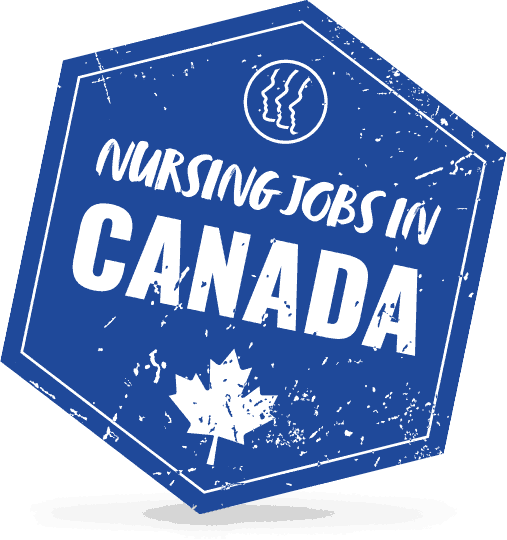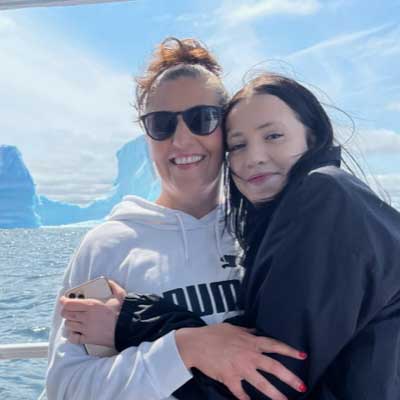

Travel Nursing in Australia
Home » Travel Nursing in Australia
Travel nursing in Australia is a great option in international travel nursing if you want to be both adventurous and speaking English. Nursing in Australia is possible only if you’ve registered through the Australian Health Practitioners Regulation Agency, or AHPRA. Like the US, each Australian state capital has its own office, but there is no exam you have to pass to become a Registered Nurse in Australia. In order to go travel nursing in Australia, you just have to have the proper schooling and experience with verifiable proof of both.
Just hearing back from the AHPRA can take months so if you’re interested in travel nursing in Australia you should start the application right now. You’ll be sent a list of all the necessary documents from your employers and nursing school. Some of these documents include your nurse school transcript where they expect to see that you’ve taken a class in Medication Administration and Pharmacology. They’ll want to see over 800 hours logged in a clinical setting.
The board will also need employment verification from your current employer and your last 5 years of employment. The AHPRA does require letters from your employers that must include information about your employment such as the length of your employment if your employment was part time or full time and it must be on a company letterhead. You will have to sign each and every page of your Resume/CV as well. The AHPRA will want to see all the different state licenses you’ve obtained.
The AHPRA may also ask for details of your clinical time and a letter from your high school to ensure that your education was in English. If you cannot get this letter from your high school you can take the IELTS. Most travel nurses also must take the International English Language Testing System exam, or the IELTS, to prove they can speak English, but US citizens are exempt.
The application fee is $576 AU and the application process usually takes around 7 months. Once you’ve gotten your license, you’re free to look for a job ! Your Australian registration also enables you to apply to be a travel nurse in New Zealand with relative ease. That process is kind of like nursing in one US state and getting a license to work in another state.
You will have to obtain a Visa to work. The varying types of Visas you can apply for depend on your age. If you are under 30 you can successfully apply for a Work-Holiday Visa if you can pass a criminal background check. These Work-Holiday Visas usually last for up to 12 months and the only caveat is that you may not work for the same employer for more than 6 months. Essentially after working at a hospital for 6 months, you have to switch to another hospital for the next 6 months.
If you are over 30 years old you have to apply for a Sponsorship Visa. In order to obtain a Sponsorship Visa, a hospital has to sponsor you and Sponsorship Visas will be valid for up to 4 years. If after 4 years you still want to live and work in Australia you can apply for a permanent residency. The island is sparsely populated so they’re very open to immigration these days.
There are 2 ways travel nurses can go about taking nursing assignments. One is per diem and the other is by taking lengthy contracts. If you work Per Diem you get the flexibility of switching locations much more easily. While contract working does provide stability, those contracts can tie you down to one location for the duration of your visa.
Switching facilities every day is made easier by the fact that the majority of hospitals in Australia still use paper charting. Only a handful of the hospitals situated around universities has electronic health records. But since you don’t have to learn a new computer charting system each time, switches occur much more seamlessly than in the United States as new nurses hardly need a five-minute orientation. Just good luck making out everyone’s handwriting! 😉
Depending on your nursing specialty , travel nursing in Australia offers pay rates that aren’t as high as California, but are relatively close to the pay rates in Florida. If you want to take the next step for travel nursing in Australia, finding an agency is just a google search away and every website is in English. We’d recommend searching for Healthcare Australia’s Nursing Down Under!
Australia Nursing Council: 683 Murray Street West Perth, 6005 WA, Australia +61-8-9481-2488
http://www.australia-migration.com/page/Nurses_ANC/257
General Information Email: [email protected]
Overseas Information Email: [email protected]
PC: @kaylaahussey
Related Posts:
- Travel Nursing in New Zealand
- International Travel Nursing 101
- Travel Nurse FAQ
- All Aboard! The Travel Nursing Europe Express!
- How to Become a Travel Nurse
- How to Become a Vocational Nurse: Steps, Training,…
Leave a Reply Cancel reply
You must be logged in to post a comment.
How to Become an International Travel Nurse

NurseJournal.org is committed to delivering content that is objective and actionable. To that end, we have built a network of industry professionals across higher education to review our content and ensure we are providing the most helpful information to our readers.
Drawing on their firsthand industry expertise, our Integrity Network members serve as an additional step in our editing process, helping us confirm our content is accurate and up to date. These contributors:
- Suggest changes to inaccurate or misleading information.
- Provide specific, corrective feedback.
- Identify critical information that writers may have missed.
Integrity Network members typically work full time in their industry profession and review content for NurseJournal.org as a side project. All Integrity Network members are paid members of the Red Ventures Education Integrity Network.
Explore our full list of Integrity Network members.
- What Is an International Travel Nurse
- Steps to Become
Choosing a Specialization
- Credentials

Great pay and boundless opportunities are just some reasons why nurses choose travel nursing. The job options are a good fit for nurses who love to travel, discover new places, and want to broaden their skill set.
Travel nurses help temporarily fill shortages. In the U.S., assignments may range from 13-26 weeks, but international assignments are often at least one year.
European countries offer some of the highest-paying jobs. Benefits can include a housing stipend, travel costs, and partially covering food and other living expenses.
Travel nursing jobs within the U.S. are simple to arrange. Travel nursing internationally, however, has a few added prerequisites.
Discover how to become an international travel nurse, types of assignments available, and the required certifications.
How Long to Become: 4-6 years
Degree Required: ADN, BSN, or MSN
Job Outlook: 6% growth, 2021-2031 Source: U.S. Bureau of Labor Statistics (BLS)
What Is an International Travel Nurse?
There is a global nursing shortage . Countries with shortages need to increase nurse graduates by an average of 8% annually. One out of every eight nurses works in a country where they were not born or trained. This is what international travel nursing looks like.
Travel nursing is available domestically. But you can also choose to travel and work internationally.
Nursing shortages have hit countries across the world and they require medical personnel to fill their needs. This offers travel nurses an opportunity to expand their skills and learn new medical techniques.
Many countries need to fill positions in nursing specialties . Hospitals, doctors’ offices, and outpatient care clinics are just some of the settings in need of international travel nurses.
The most sought-after nurses often have experience in emergency rooms (ERs)/ emergency departments (EDs) as an ER nurse , intensive care, and cardiac care. Nurses with experience as a labor and delivery nurse and in neonatal nurse care are also desirable.
Steps to Becoming an International Travel Nurse
Becoming an international travel nurse is much like working as a domestic travel nurse. However, there may be additional requirements depending on your destination.
A nurse must hold licensure from the state board of nursing , which confers the registered nurse (RN) credential.
Earning this requires passing the National Council Licensure Examination for RNs (NCLEX-RN). Some states have additional requirements.
To start your journey as an international travel nurse, take the following steps:
Earn a bachelor of science in nursing (BSN) degree.
International travel nursing demands high-level nursing skills in your specialization. This starts with earning a four-year bachelor of science in nursing degree from an accredited school.
A bachelor of science in nursing (BSN) improves patient care and prepares you for leadership and management positions.
Nurses with an associate degree in nursing (ADN) may enroll in an RN-to-BSN degree bridge program to complete their BSN. If you are entering a BSN program with a bachelor’s in another field, consider accelerated nursing programs .
Pass the NCLEX-RN exam.
The National Council of State Boards of Nursing offers the NCLEX exam . It is a national exam all U.S states accept. The test demonstrates your clinical competency in nursing and decides if your state will issue you a nursing license.
To take the exam, you must hold either an ADN or BSN, which can also help you develop a NCLEX study plan . You are tested on care management, pharmacology, and safety and infection control, among other areas. NCLEX practice questions are available through various study sites.
Gain experience.
To work and travel domestically, the best travel nursing agencies may want you to have at least one year of experience in your specialty. However, international travel nursing positions may require even more experience or nursing certifications . This depends on the country and the facility you’ll work from.
Earn proper credentials.
Domestic travel nursing requires that you have a nursing license in the state where you will be working. For international travel nursing, your destination country may have a longer list of requirements.
This list can include a valid passport, visa to work in the country, and vaccinations needed before traveling . Some facilities may require special certifications. Others may require a language test to demonstrate proficiency before travel.
Find employment.
International travel nurses may work in hospitals, doctors’ offices, or outpatient clinics. While it’s not necessary to work with a travel nursing agency, it can help you look for work, finalize your contract, and move.
Note the length of your contract as you decide on your location. Domestic travel nurses often work 13-26 weeks. International nurses may be offered one- or two-year contracts.
International Travel Nurse Schooling
As you consider your options as a travel nurse, know the educational and skill requirements you may need. Most organizations prefer a BSN degree.
To work internationally, you need an undergraduate degree in nursing from a four-year program, such as an in-person or online BSN program . To apply for a graduate-level program, students often must hold a BSN.
Admission Requirements
Program curriculum, time to complete, skills learned.
Whether choosing to work in a nursing specialization or advancing your career through a graduate program , nursing offers the opportunity to specialize. Nurses graduating from a BSN program can choose to become certified in a specialty, which demonstrates their advanced knowledge.
For example, nurses may choose certification as a rehabilitation nurse , a pain management nurse , or in cardiac care.
Advanced practice registered nurses (APRNs) can choose to practice as a family nurse practitioner, pediatric nurse practitioner, adult-gerontology nurse practitioner , acute care nurse practitioner, psychiatric mental health nurse practitioner, nurse midwife, certified registered nurse anesthetis t, and more.
The specialty you choose will help determine your opportunities as an international travel nurse.
International Travel Nurse Credentials
International travel nurses need a nursing license in the U.S. An APRN needs to take the certification exam in their specialty. After these two requirements, you will need a passport, visa, work permit, and any sponsorship for your destination country.
Each country may have its own list of necessary documentation. This can include professional references, birth certificates, immunization records, and proof that you can speak the language.
Certifications
APRNs need certification in their specialty field. For example, those who want to become a family nurse practitioner (FNP) must pass the FNP certification exam. This is a valid, reliable demonstration of your competency in the field.
An RN may choose to have certifications that demonstrate advanced knowledge in rehabilitation nursing, pain management, or other specialty areas. Professional associations offer certifications that have specific requirements to maintain the credential.
Nursing requires state licensure that confers the credential of RN on the nursing candidate. To get the license, nurses must pass the NCLEX-RN.
Additional requirements depend on the state, including background and fingerprint checks, or school transcripts. Each state board of nursing has requirements to maintain licensure, including continuing education .
Working as an International Travel Nurse
Nursing gives you a unique opportunity to work and travel the world. The severe global nursing shortage has opened up opportunities for nurses who work in operating and emergency rooms, cardiac and neonatal units, and other specialties.
Countries with the highest salaries for travel nurses are Luxembourg, Switzerland, and the United States. However, they also have the highest cost of living. The average salary is $115,020 per year according to ZipRecruiter as of January 2023, or about $2,210 per week.
The simplest way to get into international travel nursing is to sign up with an agency that works with international organizations. They help refine your travel search based on your skills and past work experience.
Consider testing the waters as a travel nurse within the U.S. before exploring long-term contracts overseas.
Another option is working with the U.S. Department of Defense (DoD, which has international jobs for nurses. The DoD works with you to ensure you have the necessary documentation to work overseas. You can receive job alerts for their international postings.
Beyond documentation, you need skills. Nurses should have communication, conflict resolution, and team player skills. Without a strong command of the local language, it is impossible to be successful.
The following are some common workplace settings for international travel nurses. Note that your specializations and certifications will help determine the positions available to you.
Organizations seek nurses who have specialty skills in the intensive care unit, emergency room, telemetry, or the operating room. These areas require critical thinking for nurses , initiative, and leadership.
Outpatient Care Clinics
In an outpatient setting, nurses must be proficient at triage, assessment, educating patients, starting IVs, and RN case management .
Doctors’ Offices
In a doctor’s office, a nurse needs mastery of communication, assessment, medication administration, wound management, and minor medical procedures.
Becoming an International Travel Nurse: FAQs
Do travel nurses go internationally.
Travel nurses can choose to travel domestically or internationally. To travel and work overseas, you need a license and certification in your specialty, passport, and work visa. You may also need to take a language test to prove proficiency and provide reference letters. While domestic travel assignments can last up to 26 weeks, international ones can last up to two years.
How much do international travel nurses make?
Travel nurses are well paid to offset the stress of living and working away from home. Travel nurse salaries depend on your nursing specialty and country placement. Your compensation package includes an hourly salary, housing stipend, and travel expenses. It may also cover food and other living expenses.
How do I become an international nurse?
The first step is to earn your BSN from an accredited school. After graduation, you must pass the NCLEX-RN and apply for a license in your state. Most travel agencies want new nurses to have at least one year of bedside experience. Many recommend two years to gain proficiency in a specialty to practice internationally.
Once accepted by an agency, it can take up to one year to gather the necessary documents required by the country if you do not already have them. This can include a passport, work visa, recommendation letters, and testing in the language. Some countries may also require sponsorship.
Where is the best place to work as an international travel nurse?
International travel nursing is an opportunity to travel overseas while working. The best place depends on your goals. For example, Luxembourg is one of the highest-paying countries, but they also have a high cost of living. Canada, the United Kingdom, and Australia do not require learning a new language. The Dominican Republic, Ethiopia, and Bolivia can offer a chance to make a real difference in people’s lives.
Learn More About International Travel Nurses

10 Tips for Nurses Interested in International Travel Nursing
International travel nursing offers you the chance to globe-trot while getting paid. These 10 tips can help you navigate travel issues that may arise.

How Much Do Travel Nurses Make?
Travel nurses can earn more than other RNs. Learn more about travel nurse pay rate, benefits, and tax breaks. Identify the highest-paying states and travel nurse specialities.

Military Nurse Career Overview
Military nurses work in fast-paced environments, caring for enlisted soldiers and their families. Learn about how to become one in the guide below.

Missionary Nurse Career Overview
Missionary nurses travel overseas to deliver nursing care and Christian counseling. See how you can become a missionary nurse and learn more about what they do.
Page last reviewed January 23, 2023
By visiting our site, you agree to our privacy policy regarding cookies, tracking statistics, etc. Read more

- Travel Nurse Agency
Travel Nursing Canada To Australia
Introduction to travel nursing canada to australia, overview of travel nursing, benefits of travel nursing, requirements and qualifications, nursing registration, visa requirements, licensing and certification, travel nursing in canada vs․ australia, healthcare systems, work environment, cultural considerations.
Welcome to our comprehensive guide on travel nursing from Canada to Australia! In this section, we will provide you with an overview of what travel nursing is and why it has become a popular career choice for many healthcare professionals․
Travel nursing offers registered nurses the opportunity to work in different locations around the world on short-term assignments․ It allows nurses to explore new places, experience different healthcare systems, and gain valuable professional and personal growth․
In recent years, Australia has emerged as a sought-after destination for Canadian travel nurses due to its robust healthcare system, diverse culture, and stunning landscapes․ This guide aims to provide you with all the information you need to know about making the transition from Canada to Australia as a travel nurse․
Throughout this guide, we will cover various aspects such as visa requirements, licensing procedures, job opportunities, living arrangements, cultural considerations, and more․ Whether you are a seasoned travel nurse or considering your first international assignment, this guide will serve as your go-to resource for navigating the process of traveling from Canada to Australia․
So let’s dive in and discover the exciting world of travel nursing from Canada to Australia!

Travel nursing is a unique career path that allows registered nurses to work in various healthcare facilities on short-term assignments․ It provides an opportunity for nurses to explore different parts of the world while utilizing their skills and expertise in different healthcare settings․
One of the main reasons why travel nursing has gained popularity is the flexibility it offers․ Nurses can choose when and where they want to work, allowing them to strike a balance between their professional and personal lives․ This flexibility also enables nurses to experience different healthcare systems, learn new techniques, and enhance their clinical knowledge․
In the context of traveling from Canada to Australia, travel nursing provides Canadian nurses with the chance to immerse themselves in Australia’s healthcare system while embracing its unique culture and lifestyle․ It allows them to contribute their skills to Australian hospitals, clinics, or other healthcare settings for a specified period of time․
Moreover, travel nursing offers financial benefits as well․ Travel nurses often receive higher pay rates compared to permanent positions due to factors such as housing allowances, shift differentials, and bonuses․ This can be particularly advantageous for Canadian nurses looking to earn a competitive income while experiencing life abroad;
In conclusion, travel nursing presents an exciting opportunity for Canadian nurses who wish to broaden their horizons by working in Australia․ In the following sections of this guide, we will delve deeper into the specific aspects related to making this transition successfully․
Welcome to our comprehensive guide on travel nursing from Canada to Australia! In this section, we will explore the various benefits of pursuing a career in travel nursing․
Professional Growth⁚ Travel nursing allows healthcare professionals to enhance their clinical skills by working in different healthcare settings․ It provides opportunities to learn new techniques, adapt to diverse patient populations, and gain exposure to various medical specialties․ This can significantly contribute to professional growth and make nurses more marketable in their future careers․
Cultural Immersion⁚ Travel nursing offers a unique chance to immerse oneself in different cultures and experience life in new places․ By working abroad, nurses can develop a deeper understanding and appreciation for cultural diversity․ It broadens their perspectives and fosters personal growth․
Adventure and Exploration⁚ Travel nursing enables nurses to satisfy their wanderlust while still maintaining a stable career․ They have the opportunity to explore new cities, landmarks, natural wonders, and engage in exciting activities during their time off work․ This sense of adventure adds an extra dimension of excitement to the travel nursing experience․
Financial Rewards⁚ Travel nurses often enjoy financial benefits such as higher pay rates, housing allowances, reimbursement for travel expenses, and bonuses․ These financial incentives can provide stability and help nurses achieve their financial goals faster than they would in traditional nursing positions․
Networking Opportunities⁚ Working as a travel nurse allows individuals to build a vast network of professional contacts across different healthcare facilities and locations․ This network can be valuable for future job opportunities or collaboration with colleagues from diverse backgrounds․
In conclusion, travel nursing offers numerous benefits including professional growth, cultural immersion, adventure, financial rewards, and networking opportunities․ These advantages make it an attractive career choice for Canadian nurses considering a move to Australia․ In the next sections of this guide, we will explore the practical aspects involved in making this transition successfully․

Before embarking on a travel nursing journey from Canada to Australia, it’s essential to understand the requirements and qualifications needed for a smooth transition․ In this section, we will outline the key prerequisites you must meet to pursue travel nursing in Australia․
In order to work as a nurse in Australia, you must be registered with the Australian Health Practitioner Regulation Agency (AHPRA)․ AHPRA is responsible for regulating healthcare professions, including nursing, in Australia․ As a Canadian nurse, you will need to apply for registration through the AHPRA website and provide evidence of your education, work experience, and professional references․
It’s important to note that while some Canadian provinces have mutual recognition agreements with Australia, allowing for streamlined registration processes, others may require additional steps such as bridging programs or exams․ Make sure to research the specific requirements based on your province of origin․
Obtaining the appropriate visa is crucial when planning to work as a travel nurse in Australia․ The most common visa option for healthcare professionals is the Temporary Skill Shortage (TSS) visa (subclass 482)․ This visa allows you to work temporarily in Australia for up to four years․
To be eligible for the TSS visa, you must have a valid job offer from an Australian employer and meet certain skills and English language requirements․ It’s advisable to consult with an immigration lawyer or registered migration agent who specializes in healthcare visas to ensure a smooth visa application process․
In addition to nursing registration, you may need additional licensing or certification depending on your specialization or area of practice within nursing․ For example, if you are a specialized nurse practitioner, midwife, or anesthetist, you may need to apply for additional endorsements or certifications through AHPRA․
It’s crucial to thoroughly research the requirements specific to your nursing specialty and ensure that you meet all necessary criteria before applying for travel nursing positions in Australia․
In conclusion, meeting the requirements and qualifications for travel nursing in Australia involves obtaining nursing registration with AHPRA, securing the appropriate visa, and fulfilling any additional licensing or certification requirements․ By ensuring that you meet these prerequisites, you can embark on a successful travel nursing journey from Canada to Australia․
When considering a move from Canada to Australia for travel nursing, it’s important to understand the similarities and differences between the two countries’ healthcare systems and travel nursing experiences․ In this section, we will compare travel nursing in Canada and Australia to help you make an informed decision․
Both Canada and Australia have publicly funded healthcare systems that provide universal access to medical services․ However, there are some notable differences in how healthcare is delivered and funded․
In Canada, healthcare is primarily funded by the government through taxes, and each province has its own healthcare system․ Nurses working in Canada often experience a high level of autonomy and are involved in various aspects of patient care․
In Australia, the healthcare system also provides universal access to medical services, but it operates on a mix of public and private funding․ Australian nurses typically work within a team-based model where collaboration with other healthcare professionals is emphasized․
The work environment for travel nurses can vary between Canada and Australia․
In Canada, travel nurses often have the opportunity to work in a wide range of settings such as hospitals, clinics, long-term care facilities, or community health centers․ The demand for travel nurses varies across provinces, with more opportunities available in urban areas or remote regions with staffing shortages․
In Australia, travel nurses can choose from various locations including major cities, regional areas, or remote communities․ The country offers diverse practice settings such as hospitals, aged care facilities, rural health clinics, or indigenous health services;
When transitioning from Canada to Australia as a travel nurse, it’s important to consider cultural differences that may impact your experience․
Canada is known for its multicultural society, with a rich tapestry of cultures and ethnicities․ Canadian healthcare settings often reflect this diversity, and nurses are accustomed to working with patients from different cultural backgrounds․
Australia also has a multicultural society, but it has a distinct cultural identity influenced by its Indigenous heritage and British colonial history․ Australian healthcare settings prioritize cultural competency and respect for the diverse needs of patients․
In conclusion, while both Canada and Australia offer rewarding opportunities for travel nursing, there are differences in their healthcare systems, work environments, and cultural considerations․ By understanding these variations, you can make an informed decision about your travel nursing journey from Canada to Australia․
Hi, my name is Ashley. I'm a traveling nurse. I write here about all the moments in this profession. I will be glad to receive feedback.

Save my name, email, and website in this browser for the next time I comment.

- Privacy Policy
- Canadian Nurse Journal
- Nursing Jobs
- Communities
Jobs Abroad
The fact that nursing is a truly international profession is underlined by the fact that more than 120 countries — Canada prominent among them — are represented on the International Council of Nurses .
The organization, founded in 1899, works to ensure that people worldwide have access to quality nursing care. Over the years, Canadian nurses have helped to advance global health by taking on challenging assignments in diverse areas of practice in many of these countries.
Today, if you are a Canadian nursing professional interested in working abroad, you can be assured that your skills are very much in demand. While CNA is not involved directly in finding paid or volunteer placements overseas, we are happy to provide the relevant links in this section.
Non-governmental organizations
There are several Canadian non-governmental organizations that recruit nurses to work in developing countries. This list contains organizations you may apply to for consideration as a cooperant. You may wish to contact the organizations that offer work in the fields and regions that interest you.
CNA sends volunteer Canadian nursing consultants but does not employ nurses to work on these overseas projects. For information on nursing in a specific country, including requirements for registration, you should contact the national nursing association directly.
See our international work section for more information.
Partners in Health... Nurses Working Together Make a Difference
Opportunities abroad with non-governmental organizations
Africa inland mission.
1641 Victoria Park Avenue Scarborough, ON M1R 1P8 Tel.: 416-751-6077 Fax: 416-751-3467 E-mail: [email protected] Website: ca.aimint.org
Types of professionals required
Volunteer positions only: Nurse educators, medical/surgical nurses, clinical nurse specialists/nurse practitioners, community health nurses, pediatric nurses, midwives, and other health personnel; health programs are integrated with other ministries that have a focus on discipleship, reaching the unreached and developing church leadership.
Length of service
Short term: 6 months to 1 year Long term: 1 year plus
Additional comments
Voluntary: Volunteers are expected to fundraise for orientation, travel costs, living allowance, medical insurance, etc. In addition to professional qualifications and experience, a strong Protestant Christian commitment is essential as well as a willingness to work in teams under the direction of local medical staff. Some additional training may be required. Locations throughout Africa.
Anglican Church of Canada
Volunteers in Mission (Ms. Jill Cruse) 80 Hayden Street. Toronto, ON M4Y 3G2 Tel.: 416-924-9192 (or 9199 ext. 315) Fax: 416-969-9797 E-mail: [email protected] Website: http://www.anglican.ca/partnerships/vim/
Various disciplines including physicians, nurses, physiotherapists, etc.
1-2 years; there is some flexibility, but no short-term (2-3 wks) placements are available.
Voluntary/salaried
Volunteers are expected to fundraise, although orientation and re-entry programming is provided.
Volunteer is supported by a local Canadian Anglican parish. Volunteers are expected to assist with fundraising for travel costs, living allowance & medical insurance. Professional services are offered by volunteers in partnership with the indigenous church. Opportunities exist in several parts of the developing world.
Canadian International Development Agency (CIDA)
200 Promenade du Portage Hull, QC K1A 0G4 Tel.: (819) 997-5006 Fax: (819) 953-6088 Website: www.acdi-cida.gc.ca/index.htm
CIDA hires a limited number of cooperants and advisers with professional and technical skills in various sectors.
Must be Canadian citizen or landed immigrant. Minimum 3 years of professional experience in the sector concerned.
Canadian Red Cross Society
170 Metcalfe Street, Suite 300 Ottawa, ON K1N 8E6 Tel.: (613) 740-1900 Fax: (613) 730-1911 E-mail: [email protected] Website: www.redcross.ca/overseaspersonnel
Core program requires specialists in community-based health, including nurses, public health managers and health promoters. In areas of conflict there are needs for health professionals with clinical skills including surgeons, anesthetists, lab technologists, medical administrators, nurses, midwives and prosthetists.
6 -12 months
Missions to Africa, South America, Asia, Middle East and Europe. Red Cross training required. Must be available to work on short notice. Contact your local Red Cross office for information.
Canadian Crossroads International
317 Adelaide Street West, Suite 500 Toronto, ON M5V 1P9 Tel.: 416-967-1611 ext.221 Fax: 416-967-9078 E-mail: [email protected] Website: www.cciorg.ca
General or professional skills or student
Average length of 4 months
Volunteers are expected to fundraise, although some assistance for travel and living expenses is provided.
Must commit volunteer time for community education. Must fundraise for expenses.
Please check the phone book for your regional office. If contacting the national office, be sure to leave your address. For more information, send a self-addressed, stamped stamped envelope.
Canadian Society for International Health (CSIH)
1 Nicholas Street, Suite 1105 Ottawa, ON K1N 7B7 Tel.: 613-241-5785 Fax: 613-241-3845 E-mail: [email protected] Web site: www.csih.org
Registry is open to health and health-related professionals with experience working in developing countries or in the area of international development in the Canadian context, or with experience that is otherwise applicable.
Registry is searched by CSIH on behalf of employers such as Canadian and non-Canadian development organizations and consulting firms, and by professionals seeking colleagues with specific experience.
YIP — International Health Youth Internship Program
E-mail: [email protected] Website: www.csih.org
Internships available to unemployed or under-employed health professionals aged 19-30 for internships in health promotion, public health and information technology capacity-building.
6-9 month internships
C$12,000 Canadian towards travel and living expenses
From Sept. 1997 to August 2003, 200 interns benefited from placements in almost 100 universities, health ministries and international health organizations worldwide.
(Centre canadien d'études et de coopération internationale) 3185, rue Rachel Est Montreal, QC H1W 1A3 Tel.: (514) 875-9911 Fax: (514) 875-6469 E-mail: [email protected] Website: www.ceci.ca
Frequently: Community health doctors, nurses, nutritionists.
Infrequently: health services administrators, among others
Mostly volunteers, but living and travel expenses covered.
Africa (mainly francophone countries), South America and Central America, Haiti and Asia. Volunteers must be Canadian Citizens or Permanent Residents.
Centre canadien d'études et de coopération internationale (CECI)
3185, rue Rachel Est Montreal, QC H1W 1A3 Tel.: 514-875-9911 Fax: 514-875-6469 E-mail: [email protected] Website: www.cause.ca
Frequently: community health doctors, nurses, nutritionists
Minimum 6 months to 1 year
Both. Most volunteers are expected to cover costs of transportation and food.
Africa (mainly francophone countries), South America and Central America, Haiti and Asia. Volunteers must be Canadian citizens or permanent residents.
CAUSE Canada
(Christian Assistance for Underdeveloped Societies Everywhere) P.O. Box 8100 Canmore, AB T1W 2T8 Tel.: 403-678-3332 Fax: 403-678-8869 E-mail: [email protected] Website: www.cause.ca
Doctors, nurses, occupational therapists, physiotherapists, psychological counselors and psychologists
Cause Canada is a Christian-motivated international relief and development organization specializing in primary health care, potable water and sanitation, reforestation, micro-enterprises and gender-specific development initiatives. Fluency in French or Spanish is highly recommended.
Hope International Development Agency
214 Sixth Street New Westminster, B.C. V3L 2A1 Tel.: (604) 525-5481 Fax: (604) 525-3471 E-mail: [email protected] Website: www.hope-international.com/
Doctors, nurses, administrators, medical technicians, engineers, water technicians, agricultural and horticultural specialists
Several weeks to 2 years
Voluntary. Some assistance for travel and living may be provided
Countries: South East Asia, South Asia, Sub-Saharan Africa, Central America
Selection & Training Department 10 Huntingdale Blvd. Scarborough, ON M1W 2S5 Tel.: 416-497-2424 Fax: 416-497-2444 E-mail: [email protected] Website: www.sim.ca
Doctors, nurses, midwives, dieticians, hospital administrators, dentists, medical technologists, physiotherapists and occupational therapists, ophthalmologists, pharmacists, community health care workers
3 months to career service
Volunteers must self-finance (solicit individual or private sponsorship).
Countries: Angola, Bangladesh, Benin, Burkina Faso, Chile, Ecuador, Ethiopia, Ghana, Niger, Nigeria, Pakistan, Peru, South Africa, South Asia, Zambia and Zimbabwe. An international interdenominational evangelical mission organization. Volunteers are required to meet the qualifications of the mission.
Emmanuel International Mission
P.O. Box 4050 Stouffville, ON L4A 8B6 Tel.: 905-640-2111 Fax: 905-640-2186 E-mail: [email protected] Website: www.e-i.org
Nurses, nutritionists
Minimum 1 year + 3 months cross-cultural training
Support raising required
An interdenominational evangelical relief, rehabilitation, leadership training and community development organization. Countries: Brazil, Haiti, Uganda, Malawi, Tanzania, Sudan, Philippines. Seeking mature, ministering Christians committed to EI’s cross-cultural doctrinal statement and mandate.
Evangelical Lutheran Church in Canada
Mission in the World Program Coordinator 302 - 393 Portage Avenue Winnipeg, MB R3B 3H6 Tel.: 204-984-9164 Fax: 204-984-9185 E-mail: [email protected] Website: http://www.cmds-emas.ca
Physicians, nurses, pharmacists, administrators
6 months to 2 years. Some long-term postings are available.
Volunteer. Support groups raise funds for travel and accommodations. Some salaried positions are available.
Participants are expected to be active in the church life of the hosting country.
Evangelical Medical Aid Society (EMAS)
30 - 5155 Spectrum Way Mississauga, ON L4W 5A1 Tel.: 905-625-4457 Fax: 905-625-1812 E-mail: [email protected] Website: www.cmds-emas.ca
All medical professionals (registered nurses, nurse practitioners, physicians, occupational therapists, physiotherapists, dentists, dental hygienists, dental assistants)
Generally, 2 weeks
EMAS is a Christian, interdenominational charitable non-governmental organization.
VSO Canada (Voluntary Services Overseas)
151 Slater Street, Suite 806 Ottawa, ON K1P 5H3 Tel.: 613-234-1364 Fax: 613-234-1444 E-mail: [email protected] Website: www.vsocan.org
Midwives, nurses, psychiatric nurses, registered nurses for those with mental handicaps, occupational therapists, speech therapists, physiotherapists, pharmacists, doctors, dentists, nutritionists, health educators
Most placements are for 2 years. Some shorter-term placements are available where there is a particularly high need.
Modest living allowance, travel, accommodation, medical insurance, training, grants.
VSO aims to support disadvantaged people in fulfilling their rights to physical, mental and social health, and improving their access to health services. Working at the community level, volunteers concentrate on the promotion of health and rehabilitation through basic education and preventative work. VSO meets requests for a range of skill areas, including assessment, prevention, education, outreach and primary and secondary care. VSO receives a growing number of requests for health workers with experience in HIV/AIDS prevention and care. 35 countries in Asia and Africa.
Médecins sans Frontières/ Doctors Without Borders
720 Spadina Avenue, Suite 402 Toronto, ON M5S 2T9 Tel.: 416-964-0619 / 1-800-982-7903 Fax: 416-963-8707 E-mail: [email protected] Website: www.msf.ca
MSF is looking for nurses, physicians, midwives and occasionally nutritionists and epidemiologists.
Contact MSF directly. All expenses are paid and field workers are provided with a living allowance and small salary.
Nurses work in a variety of contexts, and the work is often more organizational and managerial than clinical.
BScN or RN diploma and 2 years’ practical nursing experience. Travel or work experience in a developing country or remote northern Canada is required.
Volunteer International Christian Service (VICS)
3 - 843 Youville Drive West Edmonton, AB T6L 6X8 Tel.: 708-485-5505 Fax: 780-485-5510 E-mail: [email protected] Website: www.volunteerinternational.ca
Public health nurses, doctors, dentists and physiotherapists
Strictly voluntary with travel expenses and a living allowance provided.
Nepal and countries in Africa, Central and South Pacific, and Central and South America. Over 21 years of age. Public health background. 18 months’ work experience since graduation an asset.
World University Service of Canada (WUSC)
1404 Scott Street Ottawa, ON K1Y 4M8 Tel.: 613-798-7477 Fax: 613-798-0990 E-mail : [email protected] Website: www.wusc.ca
Doctors, nurses, nurse trainers
Both voluntary and salaried positions are available. Salary depends on program.
Public health background and work experience an asset.

Canadian Nurses Association Suite M209, 1554 Carling Ave, Ottawa ON K1Z 7M4 Canada Telephone: 613-237-2133 or 1-800-361-8404
- Upcoming Events
- Advocacy Priorities
- Certification
- CNA Position Statements
- News Releases
- Frequently Asked Questions
- CNA Accessibility Policy
- Terms & Conditions of Use
- Protection of Personal Information

YOUR ALL EXPENSES PAID TICKET TO YOUR NEXT WORKATION DESTINATION. INTERESTED IN WORKING IN REMOTE PRACTICE NURSING STATIONS? check it out here!

TravelNurse is your connection to thousands of nursing jobs across Canada.
TravelNurse offers you the freedom you need to make your travel dreams come true, without forcing you to leave your career or give up your income. With higher-than-average wages and travel and housing paid for, it is finally possible for you to take advantage of this time in your life where you’re able to explore.
Interested in working in Remote Practice Clinics – Our Clinical Department has put together a bit of information about what working in remote stations is like. Check it out here!

YOUR ADVENTURE
Starts here.

Search Nursing Jobs

Register with TravelNurse
Stay Connected on Facebook
Share your travel nursing adventures with us on our Facebook page. It’s also a great way to stay connected with job postings.
Let’s Connect

Travel Nursing
See the country while doing what you love! Excellent compensation, paid travel and accommodations and much more!

Assignment Locations
Locations that range from rural/remote hospital or clinic settings to big city experiences.

Looking for Accommodations ?
If you are looking to rent your unit to working professionals for a short or long-term basis, please complete our Accommodations Provider Application form.
Call Us Toll Free
1-866-355-8355
For the best experience, our website uses cookies. By continuing to use this site you agree to the use of cookies. learn more about our policies Got It
Travel Nursing in Canada!
Where do YOU want to travel nurse?
With our 25 years of experience we offer you the incredible freedom to explore Canada. From Bella Bella in BC to Goose Bay in NL we offer the greatest number of contracts to choose from.
Why Travel Nurse
How It Works

25 years of pairing dreams and destinations!
Trust the experience that comes with time.
Apply Today. It Takes 2 Min.

Welcome to Canada's most experienced travel nursing company!
Our mission is to enhance the enjoyability and comfort of your travel, nursing contract, and Canadian adventure to the fullest extent possible.
You are regarded as a highly valued team member, and we provide insurance and liability coverage to ensure your peace of mind.
25 Years and Counting
Founded in January 1999
2,109 Nurses Placements
857,709 Hours Of Care
43 Support Staff
We're here to help you!

Travel Nursing
As a travel nurse in Canada, you can pursue your travel dreams while ensuring a stable income. These positions provide above-average wages and full coverage for travel and accommodation expenses, enabling you to freely explore and wander.
With an extensive 25-year experience under our belt, rest assured that we will be dedicated to supporting you throughout the entire duration of your contract.
Let's Get Started
How long are contracts?
Most contracts last 6-8 weeks, though some travel jobs may be longer. Many contracts are renewed if the traveler and the hospital are in agreement. Some travel nurses extend multiple times, when the job is a perfect fit!
Do you provide insurance?
Absolutely, you have comprehensive coverage throughout your contract. At Select Medical Connections, we consider you part of our team, and we treat you accordingly.
How long is the application process?
Traditionally, seasoned travel nurses start looking 6 to 10 weeks before they want to start their next travel assignment. If you know you’re ready to travel or will be soon, we recommend filling out an application so you’re prepared to seize the right opportunity.
See all the FAQ's.
We Have Contracts In:
Yukon - British Columbia - Alberta -Saskatchewan - Manitoba - Ontario - Newfoundland and Labrador
New Brunswick - Nova Scotia

What our nurses have to say.
We highly value and appreciate the reviews from our dedicated travel nurses. Their valuable feedback helps us continuously improve the experiences of our nursing professionals. We are sincerely grateful for their time and effort in sharing their thoughts, which aids us in understanding their needs and preferences.

RN in Saskatchewan
I had the opportunity to work as a travel nurse in Regina, SK. It was a great way to get a taste of the life on the prairies. I really enjoyed the feel of working in a smaller hospital setting and met some great people along the way. My experience with Select Medical was excellent!

RN in Newfoundland
Currently on my first contract in Saint Anthony Nfld. My recruiter, Callie, is very responsive, offered me my next contract closer to home and has me all booked in well in advance! Very appreciative to have had this experience and looking forward to my next!!!

I’ve been with Select Medical for about a year and a half now and my recruiter, Andrew has been kind, prompt and supportive throughout all of my contracts. It’s an incredible opportunity and I’ve met some lifelong friends along the way.

LPN in Nova Scotia
2nd contract in Nova Scotia, will definitely going back again. Travel nursing gives me opportunities to be more proactive! I get to learn new skills and techniques while I get to explore the beauty of unfamiliar places I haven’t been to.

Love taking long walks on my days off! I love meeting new people and exploring new places during my free time! Who doesn’t love getting paid to travel l?!

RN in Nova Scotia
Met up with a travel nursing friend from the West Coast to explore the East Coast while on contract at different hospitals in the region!

RN in Manitoba
Select Medical Connections has been an amazing experience. The staff are extremely accommodating and the people I’ve met are unforgettable. I had the opportunity to earn lots of money while exploring new places, which is unheard of in most professions. If you want to upgrade your nursing career, then you definitely need to try travel nursing with Select Medical Connections.

My experience with Select Med Connections was one of the best experiences of my 22 years of nursing! My recruiter was so enthusiastic and really paid attention to my prerequisites before accepting my position, so I would get the most out of it!! I cannot wait to do it again!! Hats off to Select and to Chantal!

My recruiter has always been there at every turn. At the beginning of a contract opportunity, I am always matched up correctly and accurately for the hospital contract. When I arrive on contract, there are no surprises, because Amanda has carefully briefed me on the expectations that are required of me. She makes regular inquiries as to how the contract is going. I look forward to working with Amanda again and will stay with Select because of her.
Even more testimonials from our nurses!
We are trusted by Health Authorities and Health Care Companies nationwide.

Why you should travel nurse.
This country is phenomenal! Get out and see it while you can. From free travel and accommodation to meeting like minded people, let's explore the advantages of travel nursing together.
More Why You Should
How we get you started.
With our 25 years of experience in contract nursing, we proudly stand by your side. When you are on contract we will be with you all the time.
More How We Help

Apply & Start Your Travel Journey
One of our recruiters be in touch within 48 hours.
Apply Now. It Only Takes 3 Min!


Can canadian nurses work in Australia?
One question that often crosses the minds of Canadian nurses is whether or not they can practice nursing in Australia. Well, the short answer is yes, Canadian nurses are eligible to work in Australia. However, there are certain requirements that they need to fulfill in order to become registered nurses in the Land Down Under.
The first step towards working as a nurse in Australia is to have your nursing qualifications assessed by the Australian Nursing and Midwifery Accreditation Council (ANMAC). ANMAC is the organization responsible for assessing the skills and qualifications of internationally qualified nurses who wish to work in Australia.
Once your qualifications are assessed and you meet the ANMAC’s standards, you need to apply to the Australian Health Practitioner Regulation Agency (AHPRA) for registration. AHPRA is the national organization responsible for the registration and accreditation of healthcare professionals in Australia.
You will also need to provide evidence of your English language proficiency. This can be done by taking the International English Language Testing System (IELTS) exam.
Moreover, before you can work in Australia, you will need to obtain a visa. There are several different types of visas available depending on your qualifications and work experience. For instance, if you have a degree-level qualification and at least three years of work experience, you may be eligible for a Skilled Independent Visa (subclass 189) which allows you to work and live in Australia permanently.
In terms of salary and job prospects, nurses in Australia are well-paid and in high demand. According to the Australian Government’s Job Outlook website, employment opportunities for registered nurses are expected to grow strongly over the next few years.
In conclusion, Canadian nurses who wish to work in Australia need to have their qualifications assessed by the ANMAC and be registered with AHPRA. Additionally, they must meet the English language proficiency requirements and obtain a relevant visa. If you fulfill these requirements, you can look forward to a rewarding career as a nurse in Australia.
Quick navigation
What are the requirements for Canadian nurses to work in Australia?
Canadian nurses who want to work in Australia need to meet certain requirements to obtain the necessary visa and registration. First, they must have completed an accredited nursing program in Canada and hold an active license from the Canadian Nursing Regulatory Body. They will also need to demonstrate proficiency in English, as the nursing profession requires strong communication skills.
To obtain registration with the Australian Nursing and Midwifery Board, Canadian nurses must provide evidence of their education and experience, as well as meet the English language requirements. They may also need to complete a competency assessment to ensure they meet Australian standards of practice. Once registered, they will be able to work in Australia under the same conditions as Australian nurses.
In addition to meeting the registration requirements, Canadian nurses will need to apply for the appropriate visa to work in Australia. The most common visa for nurses is the Skilled Independent Visa, which requires applicants to score a certain number of points based on their qualifications and experience. The process can be complex and time-consuming, so it’s important for Canadian nurses to research the requirements thoroughly and seek assistance from a registered migration agent if necessary.
Are there any differences in nursing practices between Canada and Australia that Canadian nurses should be aware of?
Nursing practices may vary from country to country, and it is important for nurses to be aware of these differences when practicing in a different country. When it comes to nursing practices in Canada and Australia, there are some notable differences that Canadian nurses should be aware of.
One of the most significant differences is the level of autonomy and authority given to nurses in Australia. Australian nurses have a greater degree of autonomy, which means they can make independent decisions about patient care and treatment plans. In comparison, Canadian nurses may have to consult with a physician or follow a set protocol in certain situations. It is important for Canadian nurses to understand the level of autonomy they have in Australia and be comfortable making independent decisions when necessary.
Another difference is in the terminology used in nursing practices. While both countries use English as their primary language, some nursing terms may have different meanings or be expressed differently. For example, in Canada, “registered nurse” is the highest level of nursing education, while in Australia, “nurse practitioner” is a more advanced level. Canadian nurses should take the time to understand the language and terminology used in Australian nursing practices to ensure clear communication and understanding with colleagues and patients.
How does the registration process work for Canadian nurses looking to work in Australia?
For Canadian nurses who are looking to work in Australia, the first step in the registration process involves completing an application with the Nursing and Midwifery Board of Australia (NMBA). The NMBA is the national regulatory authority in Australia responsible for the registration and accreditation of nurses and midwives. This application provides the NMBA with the necessary information to determine whether or not an applicant meets the requirements for registration.
One of the main requirements for Canadian nurses seeking registration in Australia is that they hold a current and valid nursing license in Canada. The NMBA will also require applicants to provide evidence of their language proficiency and any relevant education and training. Additionally, Canadian nurses may need to undertake a skills assessment with an approved provider to ensure that they meet the relevant standards for registration in Australia.
Once an application has been received and assessed, the NMBA will make a determination about an applicant’s eligibility for registration. If the application is approved, the nurse will be issued with a registration number and can begin practicing in Australia. It is important to note that the registration process can take several months, so nurses should plan accordingly to ensure that they have sufficient time to complete the necessary steps.
Are there any cultural or language barriers that Canadian nurses may face when working in Australia?
Canada and Australia share many similarities in their cultural values, making it fairly easy for Canadian nurses to adjust to the Australian work environment. However, there are still some cultural nuances and language barriers that Canadian nurses may face when working in Australia. Firstly, the Australian healthcare system operates with a different vernacular than Canada, which may lead to some confusion for a Canadian nurse working in Australia. For example, the term “ward” is commonly used instead of “unit” and “doctor” is replaced with “GP” (general practitioner). These small differences can be challenging for Canadian nurses to navigate, but can be quickly overcome with a little practice.
Another cultural difference Canadian nurses may encounter is the use of slang words or phrases that may not be familiar. Australian slang can be difficult to understand, and it can lead to misunderstandings or miscommunications, which are especially critical in healthcare contexts. For example, Australians may use the term “bathers” instead of “swimming costume” or “swimsuit”. These kinds of linguistic subtleties are less serious but can still pose a challenge in understanding and communicating effectively with patients and colleagues.
In conclusion, the cultural and language barriers faced by Canadian nurses working in Australia can be significant, but not insurmountable. With some flexibility and open-mindedness to their new surroundings, Canadian nurses can quickly adapt and thrive in their new environment. Embracing cultural differences and being proactive in language learning can go a long way in facilitating successful cross-cultural nursing practice between Canada and Australia.
What are the job prospects for Canadian nurses in Australia, and which regions or specialties are in high demand?
Nursing is a highly valued profession in Australia, and the demand for experienced and qualified nurses continues to grow year on year. Canadian nurses stand a good chance of finding employment in Australia as there is a significant shortage of nursing staff in the country. The Australian government has implemented various schemes and initiatives to attract overseas qualified nurses, which makes it easier for Canadian nurses to obtain work visas and secure employment.
In terms of the regions and specialties that are in high demand, registered nurses are needed throughout the country, particularly in rural and remote regions where healthcare services can be limited. Specializations such as emergency nursing, critical care nursing, and aged care nursing are also in high demand, as these areas require specialized skills and experience. Additionally, nurses with experience in oncology, mental health, and primary care are also sought after. One of the benefits of nursing in Australia is the opportunity for career development and advancement, with potential to specialize in areas like research or education. Overall, Canadian nurses have excellent job prospects in Australia, with plenty of opportunities for career growth and development.
Bell R Webster
Recent Posts
Can Ontario rpn work in Alberta?
Registered Practical Nurses (RPN) are an essential part of the healthcare system in Canada. They work in various roles such as hospitals, clinics, and long-term care facilities to provide care to...
What to do if you win the lottery in Ontario?
Winning the lottery is a dream that many Canadians harbor. A sudden surge of wealth can bring a lot of happiness and freedom. However, handling such a significant amount of money can be overwhelming,...

A Comprehensive Guide to Canadian Travel Nursing Requirements
Travel nursing has become a popular career choice for many healthcare professionals in Canada. It offers opportunities for adventure, higher pay rates, and the chance to gain experience in different healthcare settings. If you are interested in pursuing a career as a travel nurse in Canada, it's essential to understand the requirements to ensure a smooth and successful transition. Luckily we are here to share this comprehensive guide to Canadian travel nursing requirements.
Nursing License
To work as a travel nurse in Canada, you must hold a valid nursing license. The specific type of license required depends on the province or territory in which you plan to work. Each province or territory has its own regulatory body for nursing, and you must meet their licensing requirements. Typically, you must have completed an accredited nursing program, passed the National Council Licensure Examination (NCLEX), and met any additional requirements, such as language proficiency or criminal background checks.
Experience and Skills
Travel nursing positions in Canada typically require a certain level of experience and skills. Employers may require a minimum number of years of nursing experience, and some may prefer candidates with experience in a specific specialty, such as critical care, emergency, or oncology. In addition to experience, having a diverse set of nursing skills, such as IV insertion, wound care, and medication administration, may be advantageous as a travel nurse. That’s not to say that you can not get a travel nurse contract without experience, it is just preferred.
Documentation
As a travel nurse in Canada, you will need to provide various documentation to meet the requirements. This includes your nursing license, professional certifications, immunization records, a vulnerable sector criminal background check, references, and proof of education and training. Additional documentation may be required as requested by your employer or regulatory body.
Work Permit/Visa
If you are not a Canadian citizen or permanent resident, you will need a work permit or visa to work as a travel nurse in Canada. The specific type of permit or visa required depends on your country of origin and the length of your intended stay. You will need to obtain the necessary permit or visa before starting your travel nursing assignment in Canada. It's important to understand the requirements and process for obtaining a work permit or visa, as it can vary depending on your situation.
Professional Liability Insurance
As a travel nurse in Canada, you will be required to have professional liability insurance, also known as malpractice insurance. This insurance provides coverage in case of any legal claims or lawsuits related to your nursing practice. It's important to understand the requirements for professional liability insurance and ensure that you have adequate coverage before starting your travel nursing assignment. The Hero Care HR department can assist in answering any questions you may have surrounding PLP insurance, as where to obtain also varies province to province
Flexibility and Adaptability
Lastly, travel nursing requires a high level of flexibility and adaptability. You will be working in different healthcare settings, with different policies, procedures, and patient populations. Being able to adapt to new environments, work with different teams, and quickly learn and apply new information is essential for success as a travel nurse in Canada.
It's important to research and understand the specific requirements of the province or territory where you plan to work and ensure that you are prepared to meet them. With the right qualifications and preparation, travel nursing in Canada can be a rewarding and fulfilling experience.
Future-Proofing Your Healthcare Organization Against Nursing Staffing Shortages
Empower new nurses for success: designing onboarding programs for seamless integration, revolutionizing nurse staffing with technology: enhancing efficiency and quality care, creating a thriving work environment for nurses: retain top talent with positive culture.
Hero Care is an equal opportunity employer, celebrating diversity and commitment to inclusivity.

Canadian Profession Path
Travel nursing in canada: what to know.
Last Updated on January 28, 2024
Introduction
A. what is travel nursing.
Travel nursing involves qualified nurses taking short-term assignments across various locations, meeting healthcare demand fluctuations.
B. The Surge in Travel Nursing Popularity in Canada
- Canadian Demand: With healthcare demands surging, Canada embraces travel nursing for flexible staffing solutions.
- Career Growth: Nurses are drawn to diverse experiences, career growth, and competitive compensation in the Canadian landscape.
- Lifestyle Appeal: The allure of exploring Canada while contributing to healthcare fuels the rising trend.
- Flexibility: Travel nursing offers a unique flexibility, allowing professionals to balance work and personal adventures.
In this section, we’ll unravel the dynamics of travel nursing in Canada, providing essential insights for prospective nurses.
From understanding the nature of travel nursing to exploring its perks, this guide is your gateway to a fulfilling Canadian nursing journey.
Requirements for Travel Nursing in Canada
Travel nursing in Canada offers exciting opportunities for healthcare professionals looking to broaden their horizons and gain valuable experience in diverse healthcare settings. However, aspiring travel nurses must meet certain requirements to be eligible for these positions.
A. Licensure and Registration for Nurses in Different Provinces
One of the primary requirements for travel nursing in Canada is obtaining a nursing license from the province you intend to work in. Each province has its own regulatory body responsible for granting licensure and ensuring nurses meet the necessary qualifications. It is crucial to research and understand the specific licensure requirements of the province you are interested in.
B. Documentation Needed to Apply for Travel Nursing Positions
When applying for travel nursing positions, documentation plays a significant role. A comprehensive resume that highlights your nursing qualifications, skills, and experience is essential. Reference letters from previous employers that speak to your clinical competence can also strengthen your application. Additionally, ensure your certifications such as Basic Life Support (BLS), Advanced Cardiac Life Support (ACLS), and specialty certifications are current and valid.
Valid identification documents, such as a passport or driver’s license, will be required for identification and background checks. Travel nursing agencies or facilities may also have their own paperwork and forms that need to be completed. Familiarize yourself with these requirements and ensure all necessary documentation is in order.
C. Immunization Requirements and Health Screenings
Immunization requirements and health screenings are crucial for travel nurses in Canada. It is essential to have up-to-date immunizations as per provincial and employer guidelines. immunizations needed include measles, mumps, rubella, and influenza. Depending on the province, a tuberculosis (TB) test or chest X-ray may also be required. Additionally, prepare to undergo a pre-employment health screening to ensure you are fit to work as a travel nurse. Some employers may also require evidence of negative drug and alcohol screenings.
In essence, travel nursing in Canada offers exciting opportunities, but it is essential to meet the necessary requirements. Obtain the appropriate nursing license for the province you wish to work in, gather all required documentation, and ensure your immunizations and health screenings are up to date. By fulfilling these requirements, you can embark on a rewarding travel nursing journey in Canada.
Read: A Day in the Life of a Canadian Pharmacist
Benefits of Travel Nursing in Canada
A. higher pay rates compared to permanent nursing jobs.
- Travel nurses in Canada enjoy higher pay rates compared to those in permanent nursing jobs.
- This allows them to earn a higher income while gaining valuable experience.
- The increased compensation reflects the travel nurse’s willingness to work in different locations.
- It also offsets the costs associated with travel and accommodation.
- Overall, higher pay rates make travel nursing an attractive option for healthcare professionals.
B. Flexibility to Choose Assignments and Locations
- One of the biggest advantages of travel nursing in Canada is the flexibility it offers.
- Travel nurses have the freedom to choose their assignments and locations.
- They can explore different cities and provinces, experiencing the diversity of the country.
- This flexibility allows nurses to build a dynamic and fulfilling career while satisfying their wanderlust.
- Whether it’s working in vibrant urban centers or serene rural communities, the choice is theirs.
C. Opportunity to Gain Diverse Experience and Expand Professional Network
- Travel nursing in Canada provides an unparalleled opportunity to gain diverse experience.
- Nurses can work in various healthcare settings, from hospitals to clinics and long-term care facilities.
- By being exposed to different environments, they enhance their skills and broaden their knowledge.
- Moreover, travel nursing allows healthcare professionals to expand their professional network.
- They can connect with colleagues from different backgrounds, enhancing their career prospects.
D. Enhanced Work-Life Balance
- Travel nurses in Canada often enjoy enhanced work-life balance compared to their permanent counterparts.
- They can schedule their assignments to accommodate personal commitments and time off.
- This flexibility allows them to maintain a healthy work-life balance and prevent burnout.
- Travel nursing promotes a sense of adventure and freedom, enhancing overall job satisfaction.
- Additionally, the ability to take breaks between assignments allows for personal rejuvenation and relaxation.
E. Access to Benefits and Perks
- Travel nurses in Canada also have access to various benefits and perks.
- These may include health insurance, housing allowances, welcome bonuses, and travel reimbursement.
- Some agencies provide retirement plans, continuing education opportunities, and professional development benefits .
- These additional benefits contribute to the overall appeal of travel nursing.
- Nurses can enjoy a range of perks that are not typically offered in permanent nursing positions.
In summary, travel nursing in Canada presents numerous benefits for healthcare professionals. With higher pay rates, flexibility to choose assignments and locations, the opportunity to gain diverse experience, enhanced work-life balance, and access to various benefits and perks, it is an attractive career option. Travel nursing allows nurses to explore different cities and provinces while building a valuable professional network. It offers a dynamic and fulfilling career path, enabling healthcare professionals to make a difference in diverse healthcare settings.
Read: Day in the Life of a Canadian Doctor: Real Stories
Challenges of Travel Nursing in Canada
Travel nursing is an exciting career that allows healthcare professionals to explore different cities and regions while providing essential care. However, like any job, it also comes with its fair share of challenges. In this blog section, we will explore some of the challenges that travel nurses may face in Canada.
A. Frequent relocations and adjusting to new environments
- Travel nurses are constantly on the move, relocating to different healthcare facilities in various cities or provinces.
- Each new location brings with it the need to adapt to a different work environment and familiarize oneself with new policies and procedures.
- These frequent relocations can be mentally and emotionally draining, as nurses have to constantly adjust to new surroundings, making new friends, and establishing a support network.
B. Limited job security and stability
- Travel nursing contracts usually have a fixed duration, ranging from a few weeks to several months.
- Once a contract ends, nurses may face uncertainty and have to look for a new assignment.
- This lack of job security can be stressful, especially if nurses have financial obligations or are the primary earners in their families.
C. Potential lack of support from colleagues and familiarity
- When working as a travel nurse, building a support network can be challenging, as nurses are constantly moving from one location to another.
- Travel nurses may not have the same level of rapport with colleagues and may miss the familiar faces and comfort of working in a long-term position.
- This lack of support and familiarity can affect the overall work experience and make it harder to cope with the demands of the job.
It’s important for travel nurses to remember that challenges are a part of any job, and they can be overcome with the right mindset and support. By focusing on the positives and embracing the adventure, travel nursing in Canada can be an incredibly rewarding career choice.
In short, the challenges faced by travel nurses in Canada include frequent relocations, limited job security, and potential lack of support. However, by taking proactive steps and maintaining a positive attitude, travel nurses can navigate these challenges and thrive in their careers.
Read: How to Become a Doctor in Canada: A Step-by-Step Guide

See Related Content: Interview: Veteran Canadian Med Tech
Finding Travel Nursing Positions in Canada
Are you a nurse looking for exciting opportunities to travel and work in Canada? Travel nursing might be the perfect career choice for you! In this blog section, we will guide you through finding travel nursing positions in Canada.
A. Resources and websites specializing in travel nursing jobs
When it comes to finding travel nursing positions in Canada, there are several resources and websites that specialize in connecting nurses with travel nursing jobs. Here are some of the top platforms to explore:
- Nursing agencies like Canadian Travel Nurses : These agencies focus on matching nurses with travel assignments across Canada.
- Nursing-specific job boards such as CanadianNurse.com : These online platforms list various nursing positions, including travel opportunities.
- General job search websites like Indeed and LinkedIn : These platforms often feature travel nursing positions posted by healthcare facilities and agencies.
It’s essential to regularly check these resources and websites for new opportunities, as travel nursing positions in Canada can be highly competitive.
B. Building Relationships with Travel Nursing Agencies
To increase your chances of landing a travel nursing job in Canada, it’s crucial to build strong relationships with travel nursing agencies. Here’s how you can do it:
- Research and identify reputable travel nursing agencies that specialize in Canada.
- Submit your application materials, including your resume and certifications, to these agencies.
- Communicate regularly with agency recruiters to stay updated on available assignments.
- Attend job fairs and industry conferences where you can meet agency representatives face-to-face.
- Consider partnering with multiple agencies to maximize your job opportunities.
Building relationships with travel nursing agencies not only increases your chances of finding suitable assignments but also provides you with valuable support throughout your travel nursing career.
C. Networking with Other Travel Nurses
Networking with other travel nurses can also be beneficial when it comes to finding travel nursing positions in Canada. Here are some networking strategies to consider:
- Join online communities and forums specifically for travel nurses to connect with others in the field.
- Attend local and regional meetups or conferences for travel nurses.
- Participate in social media groups and discussions focused on travel nursing in Canada.
- Reach out to experienced travel nurses for advice and recommendations on job opportunities.
Networking with fellow travel nurses allows you to tap into their knowledge and experience. They can provide valuable tips and insights into finding the best travel nursing positions in Canada.
Therefore, finding travel nursing positions in Canada requires utilizing various resources, building relationships with agencies, and networking with other travel nurses. By combining these strategies, you can embark on an exciting and fulfilling travel nursing career in Canada.
Read: The Evolution of Medical Practice in Canada
Tips for Success in Travel Nursing in Canada
Travel nursing in Canada can be an exciting and fulfilling career option for healthcare professionals. It offers the opportunity to explore different regions, gain valuable experience, and make a positive impact on patients’ lives. To ensure a successful travel nursing experience in Canada, here are some essential tips:
A. Stay organized and plan ahead for relocations
- Create a checklist to ensure you pack all necessary documents and personal belongings.
- Research your new location, including housing options and amenities, to make the transition smoother.
- Stay on top of licensing requirements and ensure all necessary paperwork is in order for each new assignment.
B. Be adaptable and embrace new challenges
- Each healthcare facility will have its own unique practices and protocols. Be open to learning and adapting to new environments.
- Show flexibility in your work schedule and be prepared to work different shifts or handle unexpected situations.
- Embrace the opportunity to work with diverse patient populations and gain experience in a variety of healthcare settings.
C. Develop strong communication skills
- Effective communication is crucial in travel nursing. Be clear and concise in your interactions with patients, colleagues, and supervisors.
- Listen actively to understand patients’ needs and concerns, and advocate for them when necessary.
- Collaborate with healthcare teams by sharing valuable information and participating in discussions and meetings.
In addition to these tips, it’s important to prioritize self-care and maintain a healthy work-life balance. Travel nursing can be demanding, but with proper planning and a positive mindset, it can be a rewarding experience.
Travel nursing in Canada offers numerous benefits that make it an attractive career choice for many healthcare professionals. Some of the key advantages include:
- Professional growth: Travel nursing allows you to gain experience in various clinical settings, enhancing your skills and knowledge.
- Competitive compensation: Many travel nursing assignments in Canada offer higher wages and additional perks compared to permanent positions.
- Flexibility: As a travel nurse, you have the freedom to choose your assignments and locations, allowing for a more flexible lifestyle.
- Exploration: Canada’s vast and diverse landscape provides opportunities to explore different provinces and immerse yourself in new cultures.
- Networking: Travel nursing allows you to connect with professionals from various healthcare facilities, broadening your professional network.
In summary, travel nursing in Canada can be an exciting and fulfilling career path for healthcare professionals. To thrive in this field, it is essential to stay organized, be adaptable, and develop strong communication skills. Additionally, take advantage of the benefits travel nursing offers, such as professional growth, competitive compensation, and the opportunity to explore Canada’s diverse regions. With these tips in mind, you can embark on a successful travel nursing journey in Canada.
Travel nursing in Canada offers numerous benefits such as higher pay, flexibility, and professional growth opportunities.
However, it also comes with its fair share of challenges including potential culture shock, being away from family and friends, and navigating different healthcare systems.
Despite these challenges, I strongly encourage nurses to consider travel nursing as a career option.
Not only does it allow you to explore different parts of Canada and experience diverse healthcare settings, but it also provides a chance to make a positive impact on patient care.
By embracing travel nursing, you can enhance your skills, develop a professional network, and enjoy the exciting adventure of living and working in different cities across Canada.
So, if you’re seeking a rewarding and dynamic nursing career, give travel nursing a serious thought. It could be the right path for you!
- Rural vs Urban Nursing in Canada
- Impact of COVID-19 on Nursing in Canada
You May Also Like

How to Become a Pharmacist in Canada

Public Health Internships: A Canadian Guide

Ongoing Education for Pharmacists
Leave a reply cancel reply.
Your email address will not be published. Required fields are marked *
Save my name, email, and website in this browser for the next time I comment.
Travel Nursing from Canada!
Your international travel nursing ticket to the usa.

Want to join fellow Canadian nurses working in the USA?
Travel nursing from Canada to the US is easier than you might think. At Aya Healthcare, we handle the paperwork so you can focus on what you do best: taking care of patients. We’ll take care of everything else.
And we mean EVERYTHING! We don’t think coming to the USA should cost you a lot of time or money. That’s why we offer this concierge service to make things as easy as possible.
Become a Canadian Nurse Working in the USA
International travel nursing can be intimidating. That’s why we walk you through each step of the process.
What’s the timeline for travel nursing from Canada? The short answer is around six months (with Aya). That’s around half the time it would take you to do it on your own or go through other Canadian travel nursing agencies. Our experts walk you through the process and review your paperwork for errors before you submit. We get you there faster by removing the barriers that slow your application.
As a Canadian nurse moving to the USA, here’s what you’ll need:
VisaScreen certification through CGFNS
CGFNS evaluates your education/credentials and verifies that you can work in the US by granting the VisaScreen certification. If you qualify for our licensure project (see right) we'll reimburse your $540 application fee once you start working. And more good news ... we can take care of the following requirements simultaneously. Again, the ENTIRE process should only take six months.
US State License
You’ve applied for VisaScreen certification. Great job! Now you need a US state license (we’ll pay for this too if you qualify). This can take anywhere from 4-12 weeks to be issued. Again, we can work on your license while you’re waiting for your VisaScreen certification.
Book a travel nursing job!
Now, you’re ready to go. Because you’re smart, you’re working with an experienced Canadian travel nursing agency. As we say in the US, “this isn’t our first rodeo.” We have deep relationships with facilities across the country. We know which healthcare facilities will book you with some of the paperwork pending.
Border crossing documentation
Congrats! You got a job and it’s time to join your fellow Canadian travel nurses in the USA! We’ll walk you through what you need to bring. Gather that documentation and cross the border within 10 days of your contract start date. Request TN Status (AKA the TN Visa for Canadian nurses) at the border. Again, we’ll help with this!
Apply for a US Social Security Number
Once you’re in the US, it’s time to apply for your social security number. This number allows you to work in any state. You should get your social security card in the mail in 4-8 weeks. This won’t affect your timeline. You can work at certain facilities while waiting for your social security card.
(Offices are currently closed due to COVID-19. This doesn't affect your ability to work.)
If any of this sounds complicated, don’t worry! We send you detailed instructions for each step of the process, track the status of your application and provide updates along the way. We have an expert licensing team dedicated to Canadian nurses. They can answer questions and provide guidance. Contact them anytime!
Start Travel Nursing in the US Today!
Here’s what it takes to qualify for Aya’s licensing project:
- RN degree from a Canadian nursing program
- At least 2 years of experience in your specialty
- Proof you passed the NCLEX
If you don't fit these criteria, don't be discouraged. Get in touch with us, we're still happy to help any way we can.
Meet travel nurses in the USA

Aya Healthcare is the preferred supplier at multiple facilities in North Carolina, New York, Minnesota, Washington and Texas. We can get you licensed quickly in those states. While you’re working your first contract (which will likely last 13 weeks or longer) we’ll help you get licensed in any state of your choosing!
We have a deep understanding of the units we staff and of fluctuations in census across the country. Essentially, we know when facilities will need RNs. We can book you assignments months in advance and ensure the units you choose are a good fit for your skill set and personality. These career planning services are just part of the package you get with Aya Healthcare.
Aya is your travel insurance policy.
International travel nursing opens the door to many wonderful experiences, but anytime you travel you may encounter bumps in the road. Things happen. When they do, we’ll be there.
We have 9,000+ open RN assignments across the country. (If you ever have an assignment cancelled, we’ll find you another #JobSecurity!) If you miss your flight and get stranded at the airport, if you have a clinical issue on the job, if you’re sick and can’t make a shift … never fear. We’ll be here. 24/7. We’ll send you an emergency contact number so you can reach us at all hours of the day or night.
Don’t want to go it alone? No problem. Bring a friend (or friends). If you ever get lonely as a Canadian nurse working in the USA, refer someone! With our smooth, easy process for getting you ready to work stateside, feel free to entice as many Canadian RNs as you’d like to join you on your journey.

Frequently Asked Questions
If you skipped the top of this page you may not know, so we’ll say it again … absolutely! Apply now and we’ll help get you started.
Pretty easy if you stick with us. We’ll walk you through the process and make sure everything goes smoothly. We have an expert team who’ve helped hundreds of Canadian nurses working in the USA. They can help you too.
In general, you’ll make more as a travel nurse in the United States than as a permanent nurse in Canada. Pay depends on where you go: states and specialties pay differently. Your recruiter (we’ll assign you one when you apply) can help you maximize your pay!
Good question! That’s up to you. You can either choose housing that we provide or take a housing stipend and find a place on your own. If you prefer the stipend, our housing team can provide you with resources that should make your search easy and, dare we say, enjoyable?
We’d love to! We bet we’ve answered a lot of your questions higher up on this page. But, if you have a question that isn’t answered on this page or would just like to talk things through, contact us and we’ll be in touch.
Aya Healthcare will provide your TN letter if you book an assignment with us. Travel nursing in the US here you come!
We might be biased, but we think you’ve found us. 😊 Check out our reviews if you’re looking for external corroboration that we’re one of the best travel nursing agencies for Canadian nurses.
You’ll have an entire Aya support team to help with each step of your journey. Your recruiter is your first point of contact (he or she is your guru, your guide.) We’ll also assign you housing , payroll and licensing experts — plus a travel experience specialist to make sure you’re happy with everything, down to the tiniest details of your assignment.
There are many reasons Canadian nurses work in the USA. Some are looking to expand their clinical skill set by working in new facilities, others want to travel to new and exciting places and some are looking to make great money. Some want all the above! Whatever your reasons for international travel nursing, we’re more than happy to help.
Start Your USA Travel Nursing Adventure
- At least 8 characters
- 1 lowercase letter
- 1 uppercase letter
- 1 symbol/special character
*File types allowed: TXT, PDF, DOC *Maximum file size: 20MB
Already have an account? Log in here .
Privacy Overview
Nursing Down under – A guide for US Nurses travelling to Australia
DISCLAIMER: Reading this article may cause you to spontaneously book a flight and travel to the land down under.
Chances are – you’re reading this article because you are a Nurse or Midwife who has chosen a career in the diverse and adaptable industry of healthcare.
On top of the great pay rates, countless opportunities and the ability to constantly learn new skills, you can live a life filled with travel and adventure, of which there are plenty to be had in the land down under.
If you’re looking for reasons like ‘cuddly koalas’ and ‘gnarly surf spots’ to twist your arm, this isn’t the article for you (I’d check out ‘7 reasons you need to go nursing in Australia’ ). This time we’re going to dig a little deeper and talk about ‘You’.
Yes, why ‘You’ in particular should join the adventure!
Table of Contents
Why Australia is looking for US Nurses?
One word, adaptable. American Nurses are quite literally a ‘Jack of all Trades’.
Between the wide range of clinical caseloads, patient and population exposure, and the daily hospital bureaucracy, the Australian healthcare industry is very aware that your on-the-job training is A-Team quality.
Most importantly, while there are some logistical differences in the way the Aussie sector works, we are confident that your clinical skills are just as relevant in Australia as they are back home.
So…why come visit Australia?
Australia is a hot-spot for internationally qualified Nurses and offers a collaborative team environment and culture that extends from the city areas to the outback.
There are excellent support systems in place from region-to-region within the units and wards ranging from first-class clinical talent to professional development. The goal at Healthcare Australia is to offer our Nurses a safe working environment in a clinical area that is within your current scope of practice, whilst also allowing you to grow as a professional. Ultimately, we find that after a couple weeks of TLC, you will be well acclimatised to the Aussie healthcare sector.
At the end of the day, the most important thing to remember is that you are part of a big community of travelling Nurses! Not only will you have the full support of your International Consultant, but we will also be able to offer you opportunities to connect with other overseas Nurses, through our online networking groups and regular social activities. Like yourself, these ladies and gents are also on their way to work in Oz or currently rostered with HCA. Check out our Facebook Group
This is kind of a big deal, right? You’re moving to the other side of the world! That’s why we’ve compiled nine frequently asked questions from US Nurses looking to come to Australia to help you make up your mind.
Is there a minimum number of hours required when signing up with HCA? ‚ Rob
As a general rule, you will need to have worked in a full-time capacity for at least 12 months. This rounds off to about 1,976 hours. It is possible that you may not be able to work in certain hospitals, if you do not meet this criteria.
What is the likelihood of actually obtaining the 189 subclass Visa. – Daniel
We always encourage our International Nurses to seek a Qualified Immigration Consultant for any specific Q&A on Visa eligibility and requirements. With that in mind, most nursing scopes fall under a Skilled Shortage category and since the 189 Visa is points based, this will greatly increase your odds of receiving the Visa. Remember, another option is arriving under a sponsorship Visa. Opportunities to obtain Residency once you have already been physically working and living in Australia will also greatly improve your chances.
Do you help with accommodation? – Katie
For Agency Nursing, you will be responsible for organising your own accommodation. Two initial options are booking into a hostel for the first couple of weeks or AirBnB. Once you know your way around town, you will be in a better position to go find more permanent lodgings.
If you decide to work a Rural & Remote placement with us, most opportunities come with ‘free’, or heavily subsidised accommodation.
With a Working Holiday Visa, it says you can work no more than 6 months with one employer, would you be the employer or would the placements be the employer? – Katie
You can work the entire duration of your Working Holiday Visa with HCA. You just won’t be able to work for one hospital for more than 6 months. Our Consultants will monitor the shifts you are being placed, so you don’t ever exceed the quota.
What is the best order to get all the registration and visa stuff done? I don’t want anything to expire while other things are getting processed. ‚ Brian
Again, another great question.
1) Submit your completed AHPRA Application
2) Apply for your Working Holiday Visa
3) Submit your International Criminal History Check (ICHC)
4) Book your Tickets (Check out our FREE FLIGHT promotion for new Nurses)
**Helpful information: Your Registration will take about 3 or 5 months to process, your Visa will take about 6 to 8 weeks to process and the ICHC will expire 3 months after processing.
Once APHRA is granted how long have you got to start working in Australia? – Gavin
Your Approval in principle will require you to be physically in Australia within 3 months of issue date.
What is the salary like?- Kelly
Each state has its own Award system based on the Level/years of nursing experience you have. It’s important to bring your Statements of Service from the hospitals you have worked at so we can pay you exactly what you’re worth. Past that point, it really comes down to your availability and how many shifts you accept vs. decline. It’s safe to say, you’ll be making enough to work, travel and play!
W hat is the maximum hours you can work a week?- Gemma
The absolute, most important thing for us is the safety of our Nurses. We need to know you are practicing safely and have at least a full day of rest somewhere in your work week. 60 hours a week would be the cap for our RNs.
How many different hospitals would you roughly work in?- Ciara
It comes down to your preferred travel radius. If you are taking public transport and don’t want to be on the train for longer than 30 minutes, we will accommodate your preferences. The great thing about Agency is, you are in control of the when and where you nurse.
Start getting ‘Pumped’ about nursing down under!
There are three things that generally get Nurses super pumped to make this dream of nursing Down Under a reality.
1) Having a live chat with our Consultants about all the ins-and-outs of Aussie Nursing. Once you realise just how attainable this dream is, there’s no doubt that you’ll be wanting to get those bags packed ASAP.
2) The first google search on, Things to do in Australia. Ultimately, everyone is different. We have the outdoor- thrill seekers, the water babies, the shop-o-holics, the foodies, the roadies, the night owls- take your pick!
3) Knowing they can fly to Australia for FREE! Join HCA and work with us as an Agency Registered Nurse and you will get your flight to Australia* for free. Find out more about our FREE FLIGHT promotion for new Nurses.
Remember, the best part of being in Australia, IS BEING IN AUSTRALIA.
Get out there and live it!
Want to know more about nursing in Australia? Register your interest below and we’ll be in touch with all the information you need to know.

If you would like to discuss your Aged Care Learning needs and how the HCA LMS might match your organisational requirements, contact us today.
Related insights
Mel bull, state manager ndis (sa & wa), sandy's shift: from a new zealand ed to travel nursing down under, kelly ramsdale, registered nurse sa, get in touch, what can we assist you with, get in touch.
What is 7+4?
Get Free NDIS advice
- Allied Services (E.g. physiotherapy / occupational therapy)
- Concierge Services
- Community Access (socialising, appointments etc)
- Nursing and complex care
- Personal Services (E.g. dressing / grooming / getting around etc)
- Supported Independent Living (SIL)
- I'm not sure
Get free Home Care advice
- Home Help (E.g. domestic assistance / meals/ medication support)
- Nursing& Specialist Care (E.g. nursing /. allied heallth)
- Family & Respite (E.g. In-home respite/overnight respite)
- Out & About (E.g. Social outings / transport)
- Flu Vaccinations
- Skin Checks
- Health Checks / Wellbeing Programs
- In Home - Disability
- In Home - Aged
- Community Access
- Supported Independent Living
- Specialist Disability Accommodation
- Youth Residential out of Home Care
Register to receive relevant jobs
By filling in this form, you are providing permission for Healthcare Australia to contact you via email, phone or SMS.
Request Demo
Enter some simple information and get your free demo.
Please complete the form below to apply for this position
- Recruitment
- Allied Health
- NDIS and Disability
- Corporate health
- Training your staff
- A & E, Critical Care & ICU
- Agency Nurses
- Clinical Coder
- Community, Maternal & Child
- Customer stories
- Disability services (NDIS)
- Falls and Balance
- HCA Rewards
- Healthcare Australia
- Human Resources & Recruitment
- ICU Nursing
- Marketing & Communications
- Occupational Therapist
- Overseas Applicants
- Overseas Nurses
- Permanent Nurses
- Rural and Remote
- Stories & news
- Support Worker Stories
- Support Workers
- Work in the UK
- How It Works
- Featured Properties
- List Your Properties
- Housing Request
- Listing Support
- Partnership Program
- Help Centre
- Account Login
Reset Password
The requirements of travel nursing in canada.

If you are a nursing professional with a sense of adventure and a passion for helping others, travel nursing in Canada could be the perfect opportunity for you. Travel nursing allows nurses to work in various healthcare settings across different provinces and territories. This profession also offers a unique and rewarding experience. However, before you pack your bags and head north, it’s essential to understand the requirements and for becoming a travel nurse in Canada. In this blog post, we will explore the key requirements and steps to embark on this exciting journey.
1. Nursing Credentials and Licensing
The first and foremost requirement for travel nursing in Canada is obtaining the necessary nursing credentials and licensing. As a foreign-trained nurse, you must have completed a recognized nursing program and obtained a nursing degree or diploma in your home country. Additionally, you need to be a licensed registered nurse or licensed practical nurse in your country of origin.
To work as a nurse in Canada, you will need to obtain a license from the nursing regulatory body in the province or territory where you plan to practice. Each province or territory has its own regulatory authority responsible for issuing nursing licenses. The licensing process typically involves verifying your education, passing language proficiency exams (if applicable), and possibly completing additional training or examinations.
2. Work Visa and Eligibility
As an international nurse planning to work in Canada, you will need a work visa or a work permit. The type of work permit required depends on the length of your intended stay and the specific nursing position you are offered. It’s essential to research and understand the different types of work permits available and which one best suits your travel nursing plans.
To be eligible for a work permit, you may need a confirmed job offer from a Canadian healthcare facility. The employer must also demonstrate that they have made efforts to hire locally and that hiring a foreign nurse is necessary due to labor shortages or specific skills required.
3. Language Proficiency
Canada is a bilingual country with English and French as its official languages. Depending on the province or territory where you plan to work, authorities may require you to demonstrate proficiency in either English or French. Language proficiency is vital as effective communication is crucial in providing quality healthcare.
Authorities usually assess English proficiency through standardized tests. These tests include; the International English Language Testing System (IELTS) or the Canadian English Language Proficiency Index Program (CELPIP). For French proficiency, they commonly use the Test d’évaluation de français (TEF).
4. Health and Safety Checks
Travel nurses in Canada are expected to meet certain health and safety requirements to ensure patient and public safety. This may involve providing evidence of vaccinations, undergoing medical examinations, and obtaining police clearance certificates or background checks.
5. Understanding Labour Laws and Employment Contracts
Before accepting a travel nursing assignment in Canada, familiarize yourself with the country’s labor laws and regulations. It’s crucial to understand your rights and responsibilities as an employee, including working hours, overtime pay, and other employment benefits.
When signing an employment contract, review it thoroughly to ensure it outlines the terms and conditions of your assignment accurately. This terms may include your compensation, housing arrangements, and any other pertinent details.
Travel nursing in Canada offers an incredible opportunity for nurses seeking professional growth, cultural enrichment, and a chance to make a difference in diverse healthcare settings. However, it is essential to meet the specific requirements, obtain the necessary licensing, and secure a suitable work permit. By navigating through the application process diligently, you can embark on an exciting journey as a travel nurse in Canada. You can also enhance both your nursing skills and life experiences.
Related Posts

Leave a Reply Cancel Reply
You must be logged in to post a comment.
Log in to your account
Create an account, forgot password, custom listing request.
If you can’t find a specific listing package that matches your property requirements, you can fill out this form, and our team will create a special listing package to accommodate your needs.
Let's Find you a place
Fill out the form below, and we will be in touch with our recommendations.
Open your doors to our travelling nurses and professionals, and we’ll take care of the rest.

IMAGES
VIDEO
COMMENTS
We offer a free flight to Australia* and can reimburse travel costs for your Travel Nurse contract placements around the country. Global Outreach We have global offices in London (servicing the UK, Ireland, Europe, and the Middle East) and Auckland (servicing New Zealand, America, Canada, Hong Kong, and Asia) and have contact centres for our US ...
If you want to take the next step for travel nursing in Australia, finding an agency is just a google search away and every website is in English. We'd recommend searching for Healthcare Australia's Nursing Down Under! Australia Nursing Council: 683 Murray Street West Perth, 6005 WA, Australia +61-8-9481-2488
International travel nursing is an opportunity to travel overseas while working. The best place depends on your goals. For example, Luxembourg is one of the highest-paying countries, but they also have a high cost of living. Canada, the United Kingdom, and Australia do not require learning a new language.
1. Earn a nursing degree. If you haven't already, the first step to becoming a travel nurse is to earn your nursing degree. You'll need at least an Associate's Degree in Nursing (ADN) or a Bachelor of Science in Nursing (BSN) to qualify for most travel nursing positions. This is your most reliable way into the industry and will give you ...
I spent almost 4 years in Australia back and left in 2015. You won't find any international travel nursing agencies. You can try looking at Healthcare Australia. I know a few people who used them. I used an agency which no longer exists. I also worked Private so there wasn't an ED. I found it was difficult to get responses from Public Hospitals.
In Australia, the type of visa you need usually depends on your age. If you are under thirty, you can get a work-holiday visa that will last up to 12 months. However, you cannot be employed by the same employer for longer than six months. This shouldn't be an issue since most travel nurse assignments do not last nearly that long.
Working as a casual RN is really good if you want to travel around and not work a lot. There are no minimum hours and you can turn down shifts if you don't want them. The problem with casual employment, though, is that you may not get much work at all. The hospital can cancel you up to four hours before your shift so you have to be really ...
Introduction to Travel Nursing Canada To Australia. Welcome to our comprehensive guide on travel nursing from Canada to Australia! In this section, we will provide you with an overview of what travel nursing is and why it has become a popular career choice for many healthcare professionals․
BScN or RN diploma and 2 years' practical nursing experience. Travel or work experience in a developing country or remote northern Canada is required. Volunteer International Christian Service (VICS) 3 - 843 Youville Drive West Edmonton, AB T6L 6X8 Tel.: 708-485-5505 Fax: 780-485-5510 E-mail: [email protected] Website: www ...
The Travel Nursing Central website provides a comprehensive resource for international travel nursing. Nurses interested in travel nursing in foreign countries can learn all they need to know right here. ... Australia, Canada (except Quebec), Ireland, New Zealand, and the United Kingdom. All other nurses must complete at least one/or all of the ...
TravelNurse is your connection to thousands of nursing jobs across Canada. TravelNurse offers you the freedom you need to make your travel dreams come true, without forcing you to leave your career or give up your income. With higher-than-average wages and travel and housing paid for, it is finally possible for you to take advantage of this ...
Travel Nurse- Canada to Australia . Hi everyone! I am looking into doing travel nursing in Australia in the New Year! I have about 4 years Acute Mental Health and Eating Disorders experience, as well as 1 year Medical-Surgical experience. I am looking into Healthcare Australia and was wondering if anyone had experience with them?
As a travel nurse in Canada, you can pursue your travel dreams while ensuring a stable income. These positions provide above-average wages and full coverage for travel and accommodation expenses, enabling you to freely explore and wander. With an extensive 25-year experience under our belt, rest assured that we will be dedicated to supporting ...
Finding a paeds job was very difficult. I went to Australia with 7 years of paeds experience from the US but the cities were just really saturated with paeds nurses. I found work rurally and really enjoyed it. Sydney/Melbourne/Perth et cetera all had PICU jobs, but wanted experience. My first job I used an agency who built a profile that had my ...
For example, in Canada, "registered nurse" is the highest level of nursing education, while in Australia, "nurse practitioner" is a more advanced level. Canadian nurses should take the time to understand the language and terminology used in Australian nursing practices to ensure clear communication and understanding with colleagues and ...
If you are under 30, you can get a working holiday visa and work as a contractor, but if you are over 30, you'll need a full time job. You can check out Healthcare Australia if you are under 30. Hi there! I am a Canadian RN looking to travel nurse to Australia. I currently work in a labour and delivery specialty but I have been told my….
Travel nursing typically means taking up temporary nursing positions, mostly in hospitals, while travelling around a new place. The work assignments can range anywhere from two to 26 weeks, with the average placement time being around the four to six-week mark. While some travel nurses are brought in to cover annual leave positions, others fill ...
Some travel nursing agencies are known for high pay, some for having the most options, some for going the extra mile in all situations, and a few are a combination of all three. ... It is important to keep an open mind when it comes to location and also remember that many places across Canada are incredible to discover. With more experience ...
Nursing License. To work as a travel nurse in Canada, you must hold a valid nursing license. The specific type of license required depends on the province or territory in which you plan to work. Each province or territory has its own regulatory body for nursing, and you must meet their licensing requirements. Typically, you must have completed ...
In summary, travel nursing in Canada presents numerous benefits for healthcare professionals. With higher pay rates, flexibility to choose assignments and locations, the opportunity to gain diverse experience, enhanced work-life balance, and access to various benefits and perks, it is an attractive career option.
Brandon and Tyler, Travel RNs (NYC) Amber, Travel RN (Washington) Aya Healthcare is the preferred supplier at multiple facilities in North Carolina, New York, Minnesota, Washington and Texas. We can get you licensed quickly in those states. While you're working your first contract (which will likely last 13 weeks or longer) we'll help you ...
Travel nurse cover letter example To help you learn more about cover letters, here is a sample cover letter for a travel nurse: Chuck Ferris Vancouver, BC 613-555-0123 [email protected] March 19, 2024 Bob Richardson Wavewood Nurses Dear Mr. Richardson, I am writing to express my interest in the travel nurse position advertised on your website. As a registered nurse with six years of ...
1) Having a live chat with our Consultants about all the ins-and-outs of Aussie Nursing. Once you realise just how attainable this dream is, there's no doubt that you'll be wanting to get those bags packed ASAP. 2) The first google search on, Things to do in Australia. Ultimately, everyone is different.
1. Nursing Credentials and Licensing. The first and foremost requirement for travel nursing in Canada is obtaining the necessary nursing credentials and licensing. As a foreign-trained nurse, you must have completed a recognized nursing program and obtained a nursing degree or diploma in your home country.